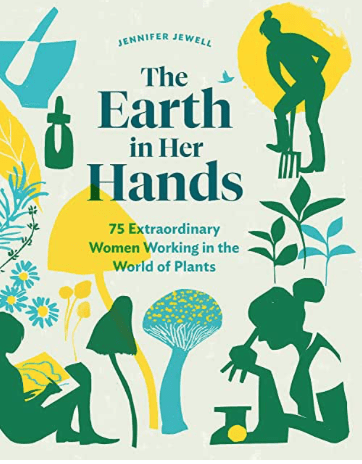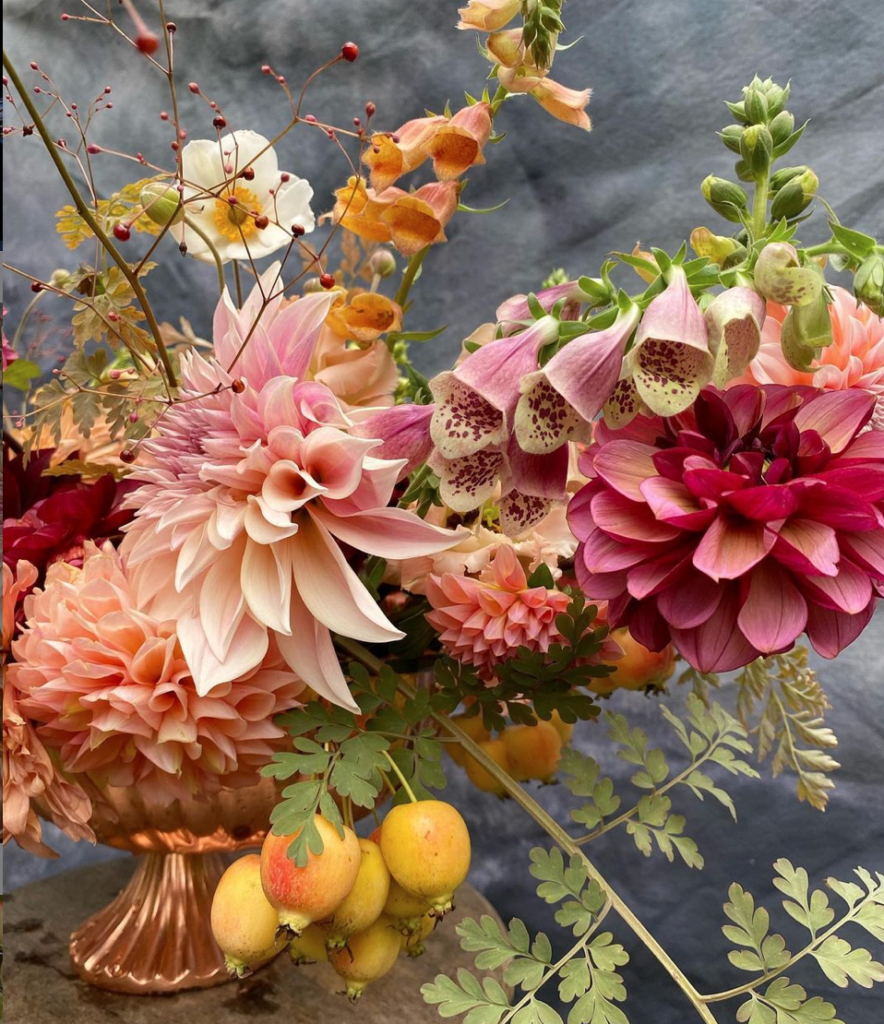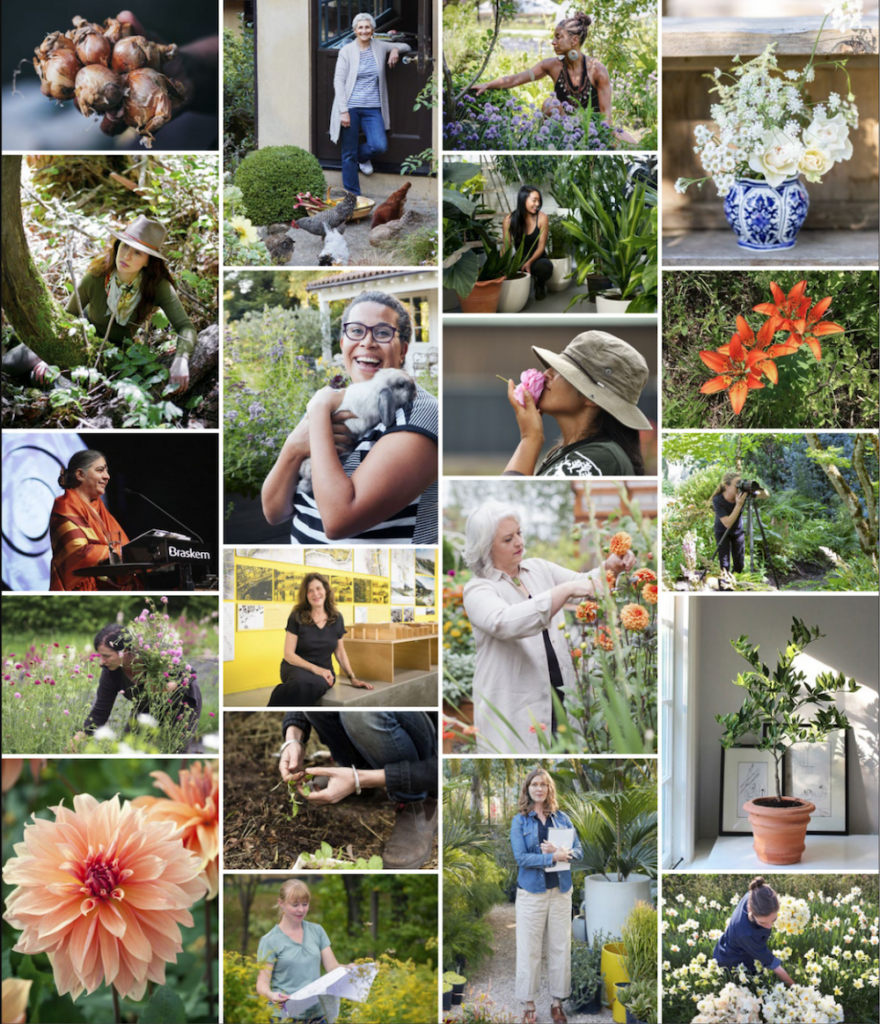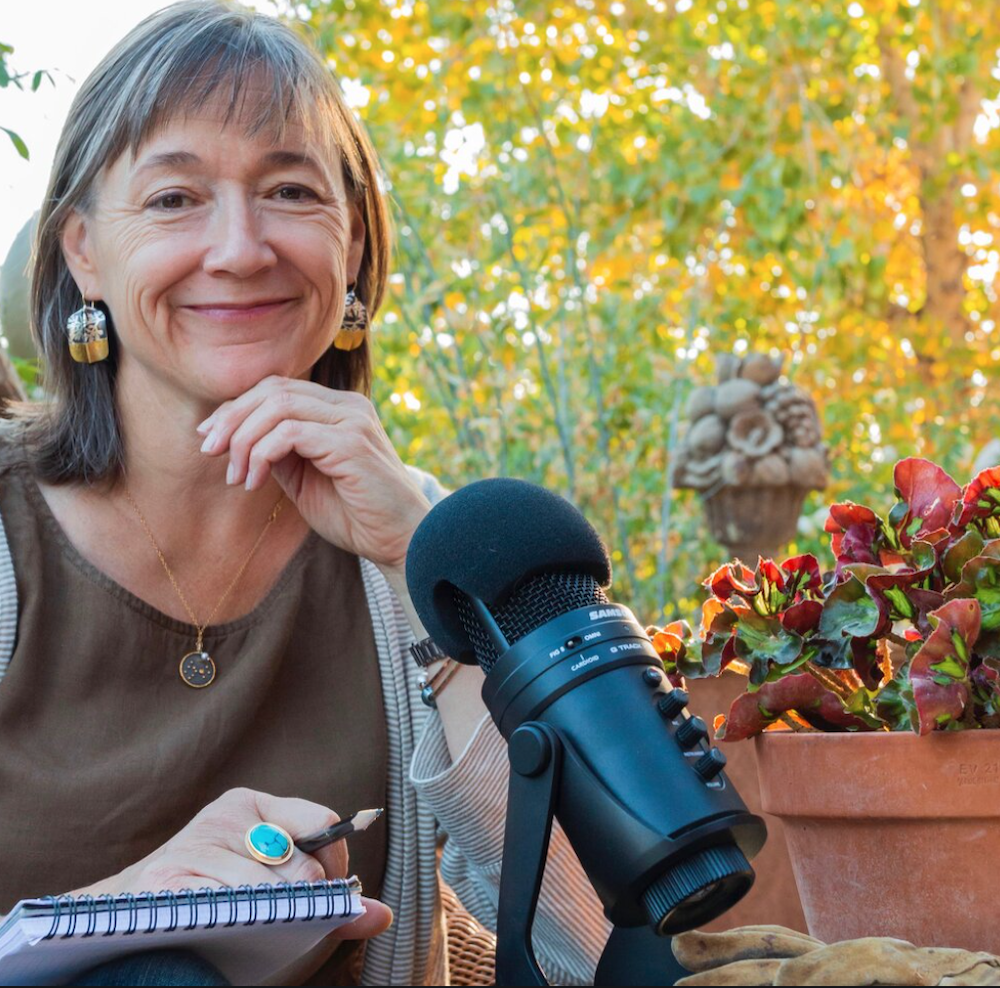Jennifer Jewell’s Journey to Discover the Garden Greats
By Jill Brooke

In honor of Women’s International Day, I couldn’t think of a better person to salute than Jennifer Jewel, who is the author of “The Earth in Her Hands” 75 Extraordinary Women Working in the World of Plants.”
In her book, I met women of all colors, from different counties and countries, and economic classes, and all ages, all connected through a love of flora.
Jewell, who also runs the award-winning podcast, “Cultivating Place,” points out reasons why as a culture we “articulated gardens to be exclusionary objects of status and wealth. It was as though gardening only existed for a slim sector of the world.”
But with a lot of digging, Jewell discovered how gardens were a source of solace and strength – and of course, food – for many throughout history and finally gathered their stories into one exceptional book.

As a result of this triumph, aside from women I already knew like Debra Prinzing and Marta McDowell, I got to meet Leslie Bennett, founder, Black Sanctuary Gardens in Oakland, California, Eliza Blank, founder of The Sill, NYC, florist and Ariella Chezar whose floral arrangements dazzle.
Then there was Karen Daubmann, Midori Shintani, Vandana Shive, and Rowen White and Yolanda Burrell of the Pollinate Farm & Garden who told Jewell, “If you step back one or two generations, we’ve all gardened and grown food, our mothers, grandmothers, aunties or tias. Giving others access to the resources and knowledge is really about teaching them not to forget how.”
So true, right?
Multicultural narratives “open and change the horticultural conversation to include far more diverse voices and cultural-historical perspectives,” says Jewell, who also asks the women who they also in turn admired. This shows so sweetly the cycle of knowledge turning and churning and creating a “lifelong relationship engaged with intergenerational passages of knowledge.”
We can teach our daughters and our daughters will teach their daughters. We can teach our friends and our friends can teach us.
In tracking history, she also learned how lonely families can be when isolating themselves in single-family homes in suburbs and how gardens create both community and self-reliance. And she was thrilled to see how “the green revolution and chemical-free soil science has emerged and is taking on a real power in how we are taught and shown new ways to garden.”
“It is so important to empower the gardens and embrace the power for positive change through this human impulse to garden,” says Jewell. “For too long, we’ve been spoken down to as though we were engaging in some pretty but unnecessary frivolous activity instead of the impactful one it is, including conversations about biodiversity, air and water quality. This is where gardening needs to move.”


We can all learn so much from Jennifer Jewell, who says her mission is to explore and celebrate a deeper conversation with the world around us through the cultivation of gardens. Her curiosity, calm and talent is steeped in years of learning about plants and flowers and truly understanding horticulture and ecosystems. She is first and foremost a teacher and this book brings us not only into gardens but into beautiful worlds and minds.
I asked her about a sequel. “There are so many people yet to interview,” she says, planting the seed of possibility for another book.
But for today, it’s about International Women’s Day.
As Jennifer says, “here’s to strong, inspiring, growing women. May we support them, may we be them, may we cultivate such humans in all that we do.”
